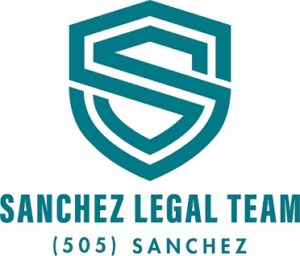
In the world of family law conflicts, finding common ground can feel like an uphill battle. Emotions run high, tensions flare, and the desire to win can sometimes overpower the desire to find a solution that benefits everyone involved. However, there is a powerful tool that can help navigate these challenging situations: mediation.
Mediation offers a neutral and confidential space for parties to come together and work towards a mutually beneficial resolution. Not all family law matters in Albuquerque need to be a zero-sum game with a winner and loser. Instead, at times, both parties can win through a mutually beneficial agreement.
With the help of a skilled mediator, families can navigate through the complexities of divorce, child custody disputes, and other family law conflicts in a more amicable and peaceful manner. Most importantly, mediation can help both sides avoid the cost, stress, and emotional turmoil of extended litigation.
In this article, Sanchez Legal Team explores the benefits of mediation in Albuquerque family law conflicts. In doing so, we highlight the ways in which mediation can help families find common ground, preserve relationships, and move forward with greater clarity and understanding.
UNDERSTANDING THE BENEFITS OF MEDIATION WITH DIVORCE AND CUSTODY
Mediation has numerous benefits in the context of family law conflicts. First and foremost, it provides a safe and supportive environment for all parties involved.
Unlike litigation, where the focus is on winning and proving fault, mediation encourages collaboration and finding common ground. This can lead to more satisfying outcomes and better long-term relationships.
Another key benefit of mediation is its flexibility. New Mexico family court judge make decisions based on law, policy, procedure, and fairness.
At times, both sides in a divorce or child custody case leave court unhappy with the result. In fact, most Albuquerque family court judges routinely and openly tell both parties to resolve their issues outside of court.
In contrast to litigation, mediation allows families to explore creative solutions that may better suit their specific needs and circumstances. This can result in more customized agreement, rather than a one-size-fits-all court order.
Also, mediation often saves time and money when compared to a potentially long and drawn-out court process. You see, court often involves several hearings to resolve all issues. What’s more, due to limited time and resources, judge may only address big issues. In doing so, smaller details may be left unaddressed.
In short, litigation can be a lengthy and costly process. During this process legal fees often pile up with motions, discovery, and court dates being continued or postponed. Mediation, on the other hand, typically takes less time and can be more cost-effective, allowing families to move forward with their lives more quickly.
In turn, mediation can foster co-parenting and long-term dispute resolution.
DIFFERENCES BETWEEN MEDIATION AND LITIGATION IN NEW MEXICO
Litigation is the traditional approach to resolving family law conflicts in Albuquerque, NM. Nevertheless, it is important to understand the key differences between mediation and litigation.
In litigation, the focus is can be on winning and proving fault. In this respect, each party presents their case to a judge who ultimately makes the final decisions –good or bad. This adversarial process can be emotionally draining and often leads to strained relationships between family members.
It can be extremely stressful confronting your ex in court. Moreover, public speaking is routinely considered one of the biggest fears and phobias. Therefore, testifying in court – subject to cross examination by an adversarial attorney – can be a harrowing event.
On the other hand, mediation is a voluntary process that encourages open communication, cooperation, and collaboration.
The mediator acts as a neutral third party who facilitates discussions and helps parties find common ground. Mediators are usually highly experienced family court attorneys. As such, mediators usually know how a particular judge will rule on a specific issue.
Unlike a judge, a mediator does not make decisions or impose solutions. Instead, the mediator uses their vast experience to help both sides reach a common ground.
THE ROLE OF A MEDIATOR IN FAMILY LAW CONFLICTS
A skilled mediator plays a crucial role in helping families navigate through the challenges of Albuquerque divorce and child custody conflicts. Experienced mediators create a safe and supportive environment where parties can freely express their concerns, needs, and interests. The mediator’s role is not to take sides or advocate for any particular outcome. Instead, the mediator guides both sides towards a middle ground on contested issues.
These issues can include divorce issues such as community property, debt, and spousal support. Check out this video for more information on how community property and debt are divided during an Albuquerque divorce.
The issues also include child custody issues such as custody, visitation, and child support. Often, the parents can develop a far more detailed Parenting Plan through mediation, relative to litigation.
Skilled mediators usually have excellent communication and negotiation skills. Most importantly, good mediators usually possess a deep understanding of family law issues – based on decades of courtroom experience.
Commonly, family court judges become mediators after retiring. For instance, Judge Angela Jewell and Deborah Davis Walker are both former Albuquerque family court judges that are now divorce and child custody mediators.
HOW TO CHOOSE THE RIGHT MEDIATOR FOR YOUR CASE
Choosing the right divorce and child custody mediator is essential to the success of the mediation process. Here are some factors to consider when selecting a mediator for your Albuquerque divorce or child custody matter.
First, court room experience matter. As such, look for a mediator who is highly experienced in family law, and has a long history of courtroom practice. In this respect, you want a mediator that is familiar with your judge and the specific issues you are facing.
Next, communication and interpersonal skills matter. Therefore, look for a mediator that has excellent communication skills. In a sense, your mediator is a salesperson that is selling both sides to a common agreement.
Third, you want a neutral and impartial mediator. Here, it is crucial that the mediator remains neutral and impartial throughout the process. The mediator should not favor one party over another. Moreover, the mediator should be committed to helping all parties find a fair and equitable resolution.
Finally, choose compatibility. In this area, you should feel comfortable and at ease with the mediator. Here, communication and interpersonal skills pop up again. Communication skills help to build trust and rapport. Moreover, trust and rapport are essential for effective mediation.
THE MEDIATION PROCESS IN DIVORCE AND CHILD CUSTODY CONFLICTS
The mediation process typically consists of several stages, each designed to facilitate constructive discussions and move parties towards a resolution. While the specifics may vary depending on the mediator and the nature of the conflict, the following outline provides a general overview of the mediation process:
First, the mediator introduces themselves and explains the purpose, process, and ground rules of the mediation. This sets the tone for the sessions and ensures that all parties have a clear understanding of what to expect. At this stage, the mediator has the parties sign a confidentiality agreement.
Second, the mediator gathers information. Here, each party has an opportunity to share their perspective, concerns, and goals. In doing so, the mediator encourages open communication and active listening, ensuring that all parties feel heard and understood.
Third, the mediator identifies contested issues. In this area, the mediator helps parties identify the key issues that need to be addressed and prioritizes them based on their importance. With divorce, these issues can include community property, debts, alimony, or taxes. With child custody, the issues often include custody, visitation, and child support.
Fourth, the mediator helps the parties explore their options. Here, both sides engage in brainstorming and exploring potential solutions. The mediator encourages creativity and helps parties think outside the box. This stage often involves evaluating the pros and cons of different options and considering the long-term implications.
Fifth, the parties negotiate, and an agreement is reached. Once potential solutions have been identified, parties engage in negotiation to reach a mutually agreeable resolution. The mediator facilitates the discussions, ensuring that all parties have an opportunity to express their opinions and concerns.
If an agreement is reached, it is typically documented in writing and signed by all parties. For example, for Albuquerque divorce cases, asset and debt issues are documented within the Marital Settlement Agreement. When children are involved in the divorce, or it’s a paternity case, the Parenting Plan memorializes the agreement.
THE POWER OF MEDIATION IN SOLVING DIVORCE AND CHILD CUSTODY CONFLICTS IN ALBUQUERQUE, NEW MEXICO
As we’ve seen, mediation offers a powerful and effective alternative to litigation in resolving family law conflicts. In this respect, mediation fosters open communication and prioritizes the best interests of all parties involved. Because of these benefits, mediation can be an invaluable tool in navigating the complexities of divorce, child custody disputes, and other family law conflicts in Albuquerque, New Mexico.
By engaging in constructive dialogue and exploring creative solutions, families can often find resolutions that are tailored to their unique circumstances. This enables both sides to move forward with greater clarity and understanding.
In the short term, this can save the parties time, stress, and expense of litigation. In the long term, this can help both sides avoid constantly going back to court to resolve issues. As a result, both sides can have increased wellbeing and an overall higher quality of life.
Mediation helps Albuquerque families find common ground. Moreover, it also preserves relationships, minimizes the emotional and financial costs of conflict, and empowers parties to make their own decisions.
Check out this video for more information on what to expect in family court in Albuquerque, New Mexico.
Do you have more questions about your Albuquerque uncontested divorce or child custody case? If so, Sanchez is one of Albuquerque’s best child custody and divorce attorneys.
Call (505) SANCHEZ today and talk with a local and reliable, Albuquerque divorce, restraining order, and child custody attorney.

Power of Mediation in Resolving Family Law Conflicts in New Mexico









